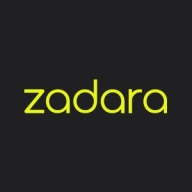

Microsoft Azure File Storage and Zadara are both prominent file storage solutions. Microsoft Azure often takes the lead in pricing and support, while Zadara stands out for its feature set.
Features: Users value Microsoft Azure File Storage for scalability, integration capabilities, and competitive pricing. Zadara is noted for advanced customization, superior performance, and long-term ROI.
Room for Improvement: Microsoft Azure File Storage could benefit from improved performance, better documentation, and enhanced customization options. Zadara needs a more intuitive setup process, an enhanced user experience, and streamlined integration features.
Ease of Deployment and Customer Service: Microsoft Azure File Storage is praised for straightforward deployment and responsive customer service. Zadara receives mixed feedback on deployment complexity but high marks for customer service responsiveness and support quality.
Pricing and ROI: Microsoft Azure File Storage is noted for its competitive pricing and good ROI, while Zadara is considered more expensive but justified by its features, yielding superior ROI over time.
The cost is not cheaper compared to AWS, and we have not seen the expected return on investment.
The perspective documentation is good.
Microsoft technical support is very prompt.
As and when we require, they are able to provide solutions or guide us toward solutions.
I rate the technical support from Zadara as nine out of ten.
We lack adequate response times and a 24/7 service level agreement.
We successfully handled a huge transaction during an iPhone launch without any issues.
Zadara is a fully-fledged platform, and our customers are happy with its use.
I rate the stability of Microsoft Azure File Storage as a seven out of ten.
We sometimes encounter glitches with bigger files, but everything else works as expected.
The information is not readily available on the internet, so we have to double-check and understand everything.
There is a limitation on the storage capacity, like four terabytes.
Some chunking logics need to be better to address issues with processing bigger files.
Maintenance can also be complicated, especially when deeper troubleshooting requires navigating the CLI and searching for logs.
Adding AI capabilities could enhance the offering as well.
I would rate it three or three and a half out of ten on the pricing scale.
I would rate the pricing of Microsoft Azure File Storage seven or eight, where one is high and ten is low.
The pricing for Microsoft Azure File Storage is five out of ten, not so expensive and not so low.
The pricing is considered expensive.
Scalability in Microsoft Azure File Storage is impressive.
File storage is complemented by OCR with Azure Cognitive Service.
It is satisfying our requirements with encryption and security features in place.
The most valuable feature is its storage management capability.
Zadara's troubleshooting feature is very valuable for me.
| Product | Market Share (%) |
|---|---|
| Microsoft Azure File Storage | 9.6% |
| Zadara | 1.6% |
| Other | 88.8% |


| Company Size | Count |
|---|---|
| Small Business | 17 |
| Midsize Enterprise | 8 |
| Large Enterprise | 24 |
| Company Size | Count |
|---|---|
| Small Business | 12 |
| Large Enterprise | 3 |
Fully managed file shares that use the standard SMB 3.0 protocol
Key scenarios:
Zadara is a powerful enterprise-level storage solution whose design enables it to handle every aspect of a user’s data storage needs. It can be deployed in any location, using any protocol, and storing any data type that an organization requires. With Zadara, organizations can do everything that they were able to do with more traditional systems in a cheaper and more efficient way.
Zadara Benefits
Some of the ways that organizations can benefit by choosing to deploy Zadara include:
Zadara Features
File analytics. Organizations can leverage a powerful analytics package that can provide them with critical insights. These tools can help users sort through their data and make more informed data management decisions.
Reviews from Real Users
Zadara is a highly effective solution that stands out when compared to many of its competitors. Two major advantages it offers are its extensive suite of cloud solution integrations and its object storage capability.
Steve H., the chief technology officer at Pratum, writes, “One of the most valuable features is its integration with other cloud solutions. We have a presence within Amazon EC2 and we leverage computer instances there. Being able to integrate with computing, both locally within Zadara, as well as with other cloud vendors such as Amazon, is very helpful, while also being able to maintain extremely low latency between those connections.”
Mauro R., the CEO of Momit SRL, says, “The object storage feature is wonderful. With traditional storage, you have a cost per gigabyte that is extremely high or related to the number of disks. With Zadara Storage Cloud, you have a cost per gigabyte that you can cut and tailor to your needs independent of the number or size of the disks.”
We monitor all Public Cloud Storage Services reviews to prevent fraudulent reviews and keep review quality high. We do not post reviews by company employees or direct competitors. We validate each review for authenticity via cross-reference with LinkedIn, and personal follow-up with the reviewer when necessary.